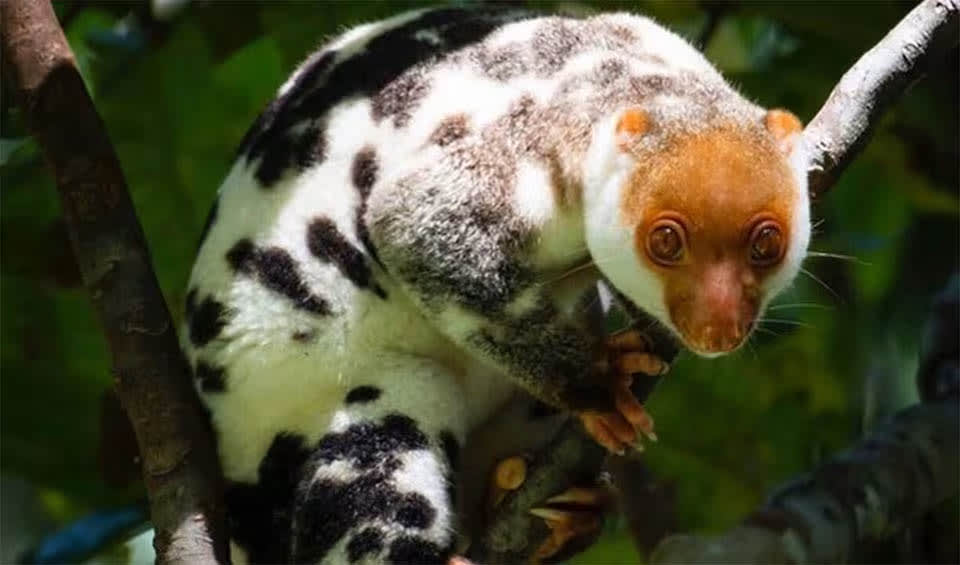A rare and intriguing marsupial that lives in the tropical rainforests of New Guinea and nearby islands. This animal is a type of possum, and it stands out because of its distinctive appearance. The black-spotted cuscus has a thick, soft coat that is typically white or light cream in color, with striking black spots scattered across its body. These spots are irregular in shape and size, making each cuscus’s pattern unique. This beautiful coat not only helps the cuscus blend into the dappled light of the forest but also makes it one of the most visually striking animals in its habitat.
One of the most noticeable features of the black-spotted cuscus is its large, round eyes. These eyes are adapted for seeing in the dark, as the black-spotted cuscus is a nocturnal animal. It is most active at night when it moves through the trees, searching for food. These large eyes allow the cuscus to navigate the dense forest and find its way in low-light conditions. Another key feature is its long, prehensile tail, which is capable of gripping and holding onto branches. This tail acts like an extra limb, providing the cuscus with balance and stability as it climbs and moves among the trees.
The black-spotted cuscus has strong limbs and sharp claws, which it uses to climb trees and grip onto branches securely. This species is an excellent climber, spending most of its time on treetops, where it is safe from ground-dwelling predators. The cuscus moves slowly and carefully, which helps it remain hidden from potential threats.
Distribution
 Indonesia
Indonesia Papua New Guinea
Papua New GuineaAnything we've missed?
Help us improve this page by suggesting edits. Glory never dies!
Suggest an editGet to know me
Terrestrial / Aquatic
Altricial / Precocial
Polygamous / Monogamous
Dimorphic (size) / Monomorphic
Active: Diurnal / Nocturnal
Social behavior: Solitary / Pack / Herd
Diet: Carnivore / Herbivore / Omnivore / Piscivorous / Insectivore
Migratory: Yes / No
Domesticated: Yes / No
Dangerous: Yes / No




